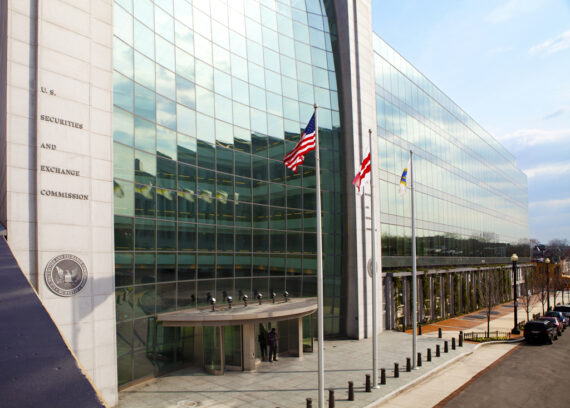Nearly two years and 24,000 public comments after its proposal, the Securities and Exchange Commission (SEC) released its final climate disclosure rule last week, formally titled “The Enhancement and Standardization of Climate-Related Disclosures for Investors.” The rule expands public companies’ disclosure requirements to include certain greenhouse gas (GHG) emissions data […]
Cynthia Hanawalt
This piece previously appeared in the CLS Blue Sky Blog. In the global effort to protect the earth’s climate, the pace of regulation is rivaled only by the speed of technological innovation. What seemed improbable just a few years ago – requiring large companies to measure and report annual greenhouse […]
It has been more than a year and a half since the Securities and Exchange Commission (SEC) proposed its climate-related disclosure rule. In the interim, lawsuits in the ESG and regulatory space have constricted the SEC’s path to promulgating a final rule that will survive judicial review. This blog post […]
In the year since the Supreme Court embraced the “major questions doctrine” (MQD), industry and Republican state attorneys general have argued that federal regulations ranging from stricter vehicle emissions standards to climate change disclosures must be struck down under its banner. Results have been mixed in the lower courts, which, […]
The Sabin Center for Climate Change Law and the Columbia Center on Sustainable Investment have released a new report: Antitrust and Sustainability: A Landscape Analysis. The report gives an overview of the broad purview of antitrust law, and the myriad and complex ways in which it intersects with and affects […]
Reader’s Note: The Columbia Center on Sustainable Investment (CCSI) and the Sabin Center for Climate Change Law (Sabin Center) are conducting a Landscape Analysis of Antitrust and Sustainability to identify the boundaries of competition and collaboration in markets as they impact non-economic benefits, particularly with respect to sustainability initiatives. In […]
Antitrust – a previously dormant area of law and federal enforcement – has reached a new zenith in recent years. While progressives aim to reinvigorate the anti-monopoly origins of antitrust, some Republicans are weaponizing antitrust in service of their narrative and legislative anti-ESG campaigns. Financial institution coalitions focused on responding […]
2023 is a significant year for corporate climate disclosure rules: regulators around the world are issuing or strengthening their disclosure requirements for registered companies pertaining to sustainability and climate-related financial risk. In Europe, the European Commission plans to finalize initial reporting standards for corporate sustainability reporting by June. UK regulators […]








